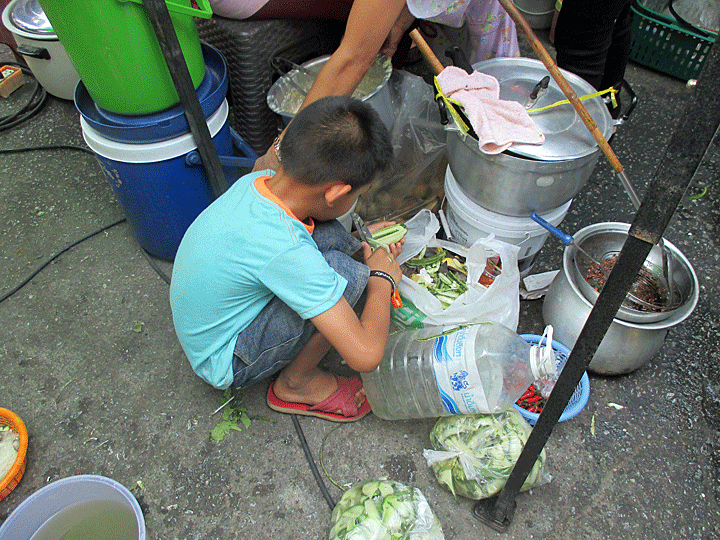No compulsory education in Thailand
Recently, many parents, especially women, were shopping for their children, who would go back to school.
Quite an investment for many people, which has led to many financial problems. Some go into debt to be able to send the child to school. The schools make it compulsory to wear certain school clothes.
However, it is striking that young children do not always go to school, partly because there is apparently no compulsory education. However, a family member or grandparents are not always available to take care of these children. These children are then taken to the workplace of one of the parents, where they are engaged or made useful early on. Is there child labor or a way to keep a child busy? Learned early, done old. Life lessons, which don't take place in school. Also known are the stories that young children help with cooking or planting rice in the field.
What is the government doing about this? I don't know if there is a compulsory education law. A number of Wats have the opportunity to receive instruction, but it is not always clear how these teachers or monks have been trained.
If a country wants to progress within an international community, education must become one of the first priorities.




That's what you say Louis. I have had some involvement with education in Thailand in recent years. That doesn't make you happy. Education should be the number 1 priority in every country. If one government does not realize this, education will not be good. I hope the new government is well aware of this. Perhaps vain hope. I can tell you that many Thai teachers work in the schools with a lot of energy and that many have the feeling that they are beating a dead horse. But keep hoping for a new wind. The children are entitled to that!
Groet
Adri
National Education Act 1999
Section 10 In the provision of education, all individuals shall have equal rights and opportunities to receive basic education provided by the State for the duration of at least 12 years. Such education, provided on a nationwide basis, shall be of quality and free of charge.
Section 17 Compulsory education shall be for nine years, requiring children age seven to enrol in basic educational institutions until the age of sixteen……
On the other hand, you may wonder what laws mean in Thailand. A coup is still punishable by death. Laws are followed or not. Guess why or why not.
Pretty simple Tino, there is no functioning control device with a fine system that finances itself
Same with traffic for example. If the sun shines too brightly or it rains too hard, you won't see a cop on the road… if it has to depend on that, then it will never be anything…
There is indeed a compulsory education law in Thailand. My Thai wife was born when compulsory education was 4-6 years old, so she only went to school for four years. On the other hand, compulsory education in NL was only XNUMX-XNUMX years. Not much difference I thought. Yes, we are both very old.
There is certainly compulsory education, but yes TIT so sticking to it is another story.
The young children you see on construction sites are usually not Thai, but Cambodia or Burma..
My children go to different schools and holidays never coincide 100%
I believe one must attend 200 days of school per year and the number of days of illness/absence is recorded, during the long holidays one is obliged to attend summer school if too many days are missed; please note 1 private and 1 semi-private school (aksorn)